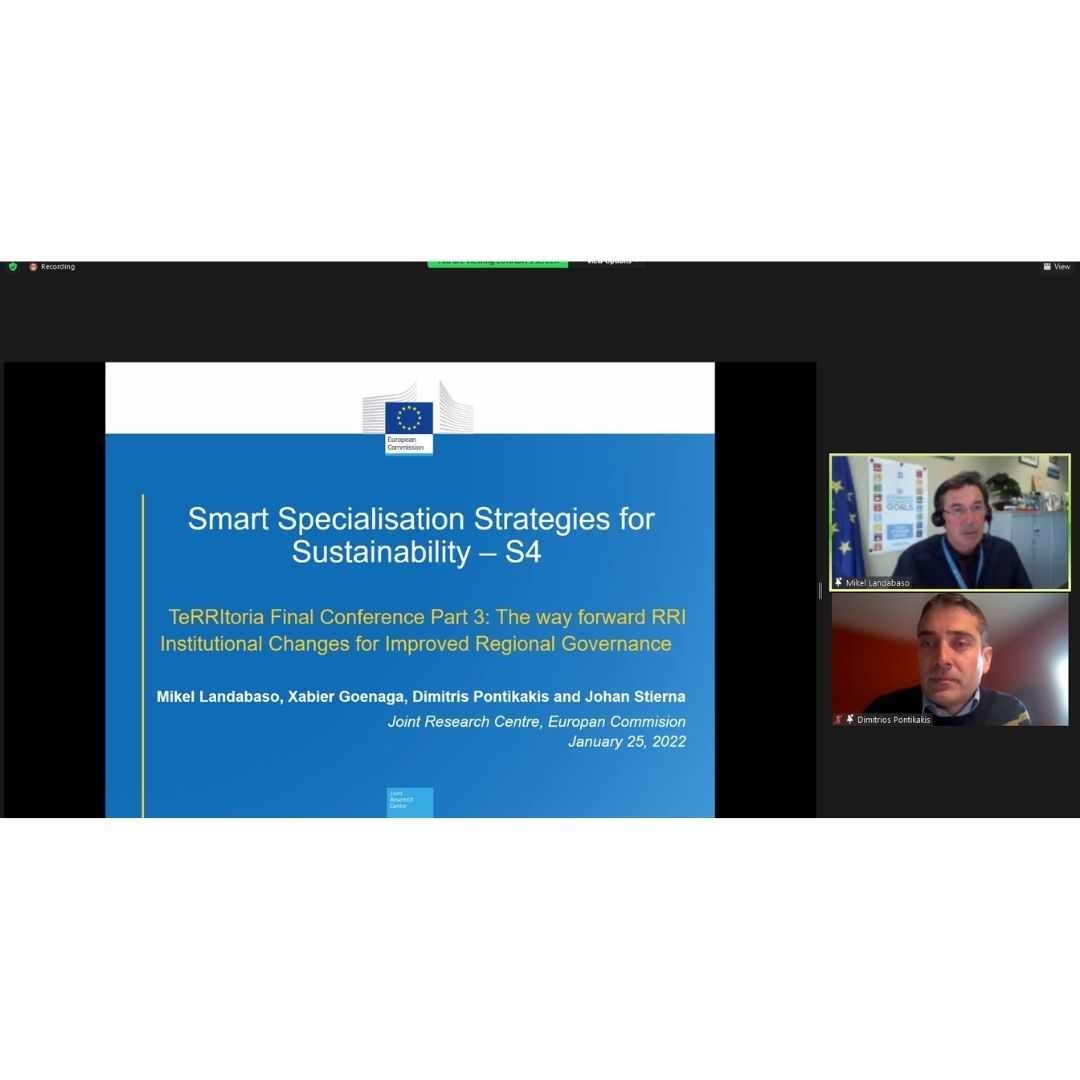EURADA served as the project partner responsible for the communication of the TeRRItoria project over the last 3 years, and as such hosted this final conference. The final conference, composed of 3 online webinars, was the culmination of the experiences had, lessons learned, and knowledge gained throughout the project.
The third session featured discussions and ideas by the key speakers and panellists on “The Way Forward for Smart Specialisation Strategies (S3) at the regional level”. Mikel Landabaso and Dimitrios Pontikakis from the European Commission’s Joint Research Centre, presented their work on the transition from Smart Specialisation Strategy (S3) to Smart Specialisation Strategies for Sustainability (S4).
Mikel shared some of the shortcomings of Research and Innovation Smart Specialisation Strategy (RIS3), including a lack of granularity of the selection of priorities in many regions, a lack of directionalityand the absence of mission-oriented approaches to objectives, a fragmentation of instruments, as well as the fragmentation of efforts both vertically and horizontally in terms of funding and governance. He noted that the challenges for S4 lie in the need to stimulate socio-economic transformation through innovation and directly respond to the shortcomings of RIS3, with an increased focus on resilience.
On the topic of why S4 is needed and why at this point in time, Dimitrios spoke on how we are in an important transformation, in large part with the European Green Deal, that serves as an opportunity to retool our economies and achieve better societal outcomes through innovation, with one objective being to use resources in ways that generate co-benefits for the economy, society and the environment. One approach to help build S4 on the lessons and successes of S3 is for regions to work backward from transformative outcomes that they want, beginning with a societal challenge and engage all relevant stakeholders, working forwards towards the rational.
Mikel and Dimitrios both discussed their current project of creating a playbook for policymakers that incorporates the lessons learned over the past decade from RIS3 and builds upon them with a new methodology drawn from the best knowledge and research of today. The playbook will serve as a set of tools: concepts, approaches, diagnostic tools, guiding principles, good practices, and examples from the ground and the pilot projects, that should be used as a set of building blocks for actors to use to develop a strategy, with the first edition of this playbook expected in mid-May 2022.
The next keynote speaker of the session was Philip McCann, who shared a presentation on the regional innovation change in the context of climate change. One challenge he brought up was that many regions prioritise smart growth over sustainable and inclusive growth, or two of the three types of growth, rather than all of them. The European Green Deal changes these priorities for regions and there is a need for a shift towards growth that is smart for sustainable, and growth that is smart for inclusive. Another challenge Philip examined was the need to address the needs of and target solutions for weaker and less prosperous cities, and areas outside of urban centres, which needs to be taken into account as strategies are developed and tested.
EURADA is extremely honoured to have had the opportunity to hear directly from Mikel Landabaso and Dimitrios Pontikakis on what the new S4 will look like and how it will be structured. 113 participants attended this event and brought forth insightful questions and discussions in response to the presentation by Mikel and Dimitrios.
If you are interested in this event, the recording can be viewed here, and the PPTs shared by the speakers can be downloaded here.
For further question about the TeRRItoria Final Conference, do not hesitate to contact Giacomo Frisanco.
